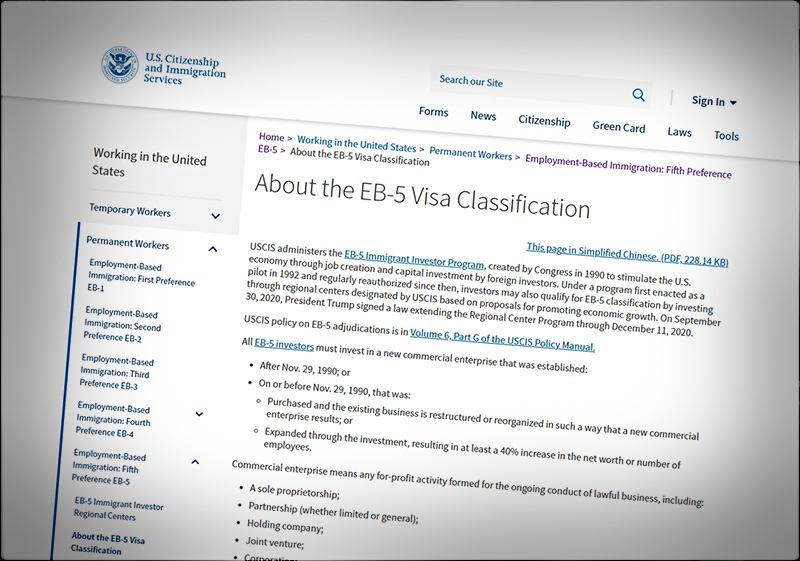
While the EB-5 (immigrant investor) program is dead, for the moment at least, there are three possible legislative vehicles for reviving the program — none of which will involve anything as old fashioned as a committee hearing or a floor vote on the program.
Congressional authorization for the main part of the program, involving the pooling of alien investments by regional centers, lapsed on June 30.
The idea is that Senate Majority Leader Sen. Chuck Schumer (D-N.Y.), a booster of the program, will try to thrust EB-5 revival language into a much more important bill that will pass Congress. He has done this often in the past.
These three vehicles are the two infrastructure bills, one relatively small and relatively bipartisan, another a much larger take on a similar set of issues, and the third the inevitable budget reconciliation bill. Schumer will try to insert the extension language into one of these Senate bills, and then hope to prevail with the House on the final piece of legislation.
Most of the action, so far, has been on the Senate. Back in June, two of the most senior members of the Senate, Chuck Grassley (R-Iowa) and Patrick Leahy (D-Vt.), who have more than 90 years of seniority between them, sought to pass by unanimous consent an extension of the program that would have preserved some basic reforms in it. Sen. Lindsay Graham (R-S.C.), acting for those who want the program extended without reforms, raised his hand and killed the proposal.
The EB-5 program offers 10,000 immigrant visas to the families of alien investors who put up a minimum of $900,000 (the previous minimum was $500,000) in a private-sector investment that has been identified by the Department of Homeland Security, but not guaranteed by it. These investments must be made by DHS-recognized regional centers; there has been much corruption in the program, usually arranged by the regional centers, or allies of them.
One scenario is that Sen. Leahy could lobby Sen. Joe Manchin (D-W.Va.) to object to any non-reform extension of the program. If so, he might mention that there has been virtually no use of the program to help the Mountain State.
On the other hand, if the Biden administration really wants to dump the program, it could start making some visible moves against it, such as moving staff from EB-5 to other USCIS activities, on the grounds that the program is dead.
Yet another possible move in the same direction seems to be out of the question, because of the June 30 deadline. The action would be to appeal the decision of a district court in California to the Ninth Circuit. In June, a federal magistrate, acting for a federal district court judge, ruled that the EB-5 program’s reforms of November 2019 must be set aside because the acting secretary of Homeland Security was not legitimately in office at the time.
Such an appeal, in this non-lawyer’s view, might well be rejected as moot, on the grounds that the law died on June 30.
